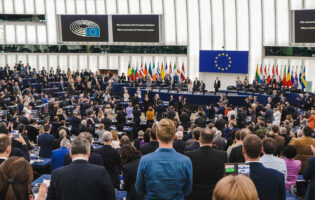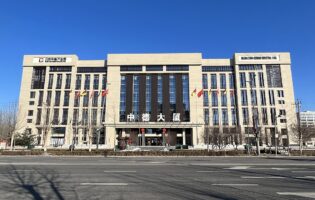Greater Financial Integration in the Face of Growing Euro-skepticism: The Merger Deal between LSE and Deutsch Börse
On March 16, 2016, the London Stock Exchange Group and Deutsche Börse unveiled a deal to merge the two companies. The deal will create one of the world’s largest exchange operators, rivaling current market operations in the U.S. and China. According to the Financial Times, the move was designed to “fight off interlopers and persuade regulators to bless the creation of a champion for European trading.” The announcement comes at an interesting time in European politics. Nearly two weeks ago the talk that dominated the financial world in Europe centered on the potential for the United Kingdom to vote to exit the European Union, which sent stock markets crashing. The news that is now making headlines is about the potential for a merger between the London Stock Market and the German Stock Market in Frankfurt. In a time when euro-skepticism is on the rise, the irony in these two contradictory news items embodies the continued struggle to achieve greater political integration and the successful economic measures.
The European project, a champion of further integration throughout Europe, has seen a number of challenges in the recent past. Europeanists have called for great political integration as a means of addressing these crises while Euro-skeptics claim these crises are a result of too much integration in Europe. Many pro-Europeanist efforts to achieve greater political unity have been denied continually, most notably in 2005 when the Dutch and the French rejected the move for an EU constitution. Failed attempts toward greater political integration are countered by successful economic integration, as one example, the banking union that completed the economic and monetary union in 2012. If the two companies successfully carry out the proposed merger, this too will be cited as an example of further economic and financial integration. The difference in furthering political and economic integration seems to lie in the disconnect between citizens and the elites. Political decisions are often left up to a vote by the people who see further integration as challenging their rights as citizens, as opposed to the decisions to achieve greater economic and financial integration, which are decided by the elites. The traditional view about economic integration was that political integration would naturally follow after economic union was completed. But as we have seen that has not played out to be true.
Europe’s largest financial center has long been outside the euro zone, but the impact that outside both the euro zone and the European Union (in the case of a so-called “Brexit”) remains to be seen. In either scenario, the United Kingdom benefits by establishing a lifeline to its European allies through the financial district in a time of uncertainty about the future of the European project and the its role in the project. Both the London Stock Exchange and Deutsche Börse have touched on the issue, noting that an exit would not impact the deal but “could well affect the volumes or nature” of business carried about by the merger.










